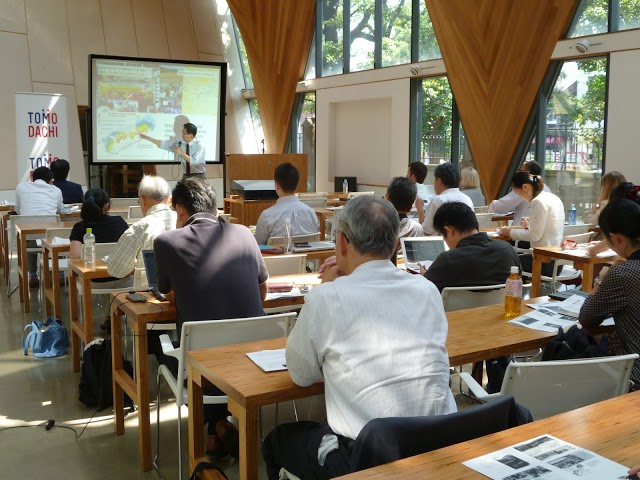日本の大学3校でTOMODACHI ICP ワークショップを開催

2014年7月上旬、TOMODACHI ICP Collegiate Civic Engagement and Social Entrepreneurship Programの一環としてICP (Innovations in Civic Participation)が日本の大学3校で市民参加についてのワークショップを開催しました。ICPを代表してスーザン・ストルードさんとフィル・ヘイズさんが7月10日に東北大学を、7月12日に沖縄国際大学を、7月15日に東京大学を訪れました。ワークショップでは、教員と学生が積極的に社会活動や奉仕活動に参加する方法について意見交換を行いました。また、日本で社会活動を盛り上げるためにはどうすればよいのか、についての対話も行われました。
東北大学のワークショップでは、東北大学の東日本大震災への反応と被災地での復興支援活動が取り上げられました。ワークショップで挙がった議題の一つに、長期的な問題の解決を目指す社会活動をどう盛り上げられるか、がありました。参加者の中には、自分の復興支援の経験を持ち出す方もいました。東北大学の植木俊哉教授と在札幌米国総領事館のテッド・ディール氏が発表を行い、日本の大学が社会活動のサポートにもっと積極的になることの重要性を唱えました。
沖縄県宜野湾市にある沖縄国際大学で開かれたワークショップでは、ホームレス問題やLGBTへの偏見問題のほか、離島での仕事の減少や米軍基地とのつきあい方など沖縄特有の問題が取り上げられました。沖縄国際大学の学生と先生がプレゼンテーションを行い、社会活動に取り組む意欲を示しました。学生からは、若者世代を挙げて社会活動に取り組むには大学からの協力が大切だとの声が多く聞こえました。
東京大学でのワークショップは、大学内のソーシャル・イノベーション・プログラムや、被災地の復興支援を取り上げました。 自身の主導するソーシャル・イノベーションを東京大学の教授が紹介し、その活動を通して感じたことや学んだことを発表しました。また、被災地での復興支援活動についての発表もありました。ある発表者は、学生ボランティア団体の立ち上げ・運営を通して学んだことについて語りました。TOMODACHI イニシアチブのローラ・ウィンスロップ・アボット事務局長もプレゼンテーションを行い、TOMODACHIの活動と社会活動の強い繋がりについて発表しました。
それぞれのワークショップでは異なる活動が取り上げられたものの、それぞれが導き出した課題や結論は同様なものでした。一つ目の結論は、日本の大学が積極的に社会活動をサポートする姿勢の大切さでした。ワークショップに参加した教員と学生は、自分の大学からの援護があれば、活動に対するモチベーションが維持でき、まだ参加をあまりしていない学生を引き込むことも簡単になると考えていました。また、社会活動への参加で単位を取得する制度はインセンティブになり得るか、そして長期的な活動が成果を出すためにはどうすれば良いか、なども挙がりました。
TOMODACHIイニシアチブは、TOMODACHI ICP Collegiate Civic Engagement and Social Entrepreneurship Programがこれからも社会活動についての意見交換の場になることを願っています。


